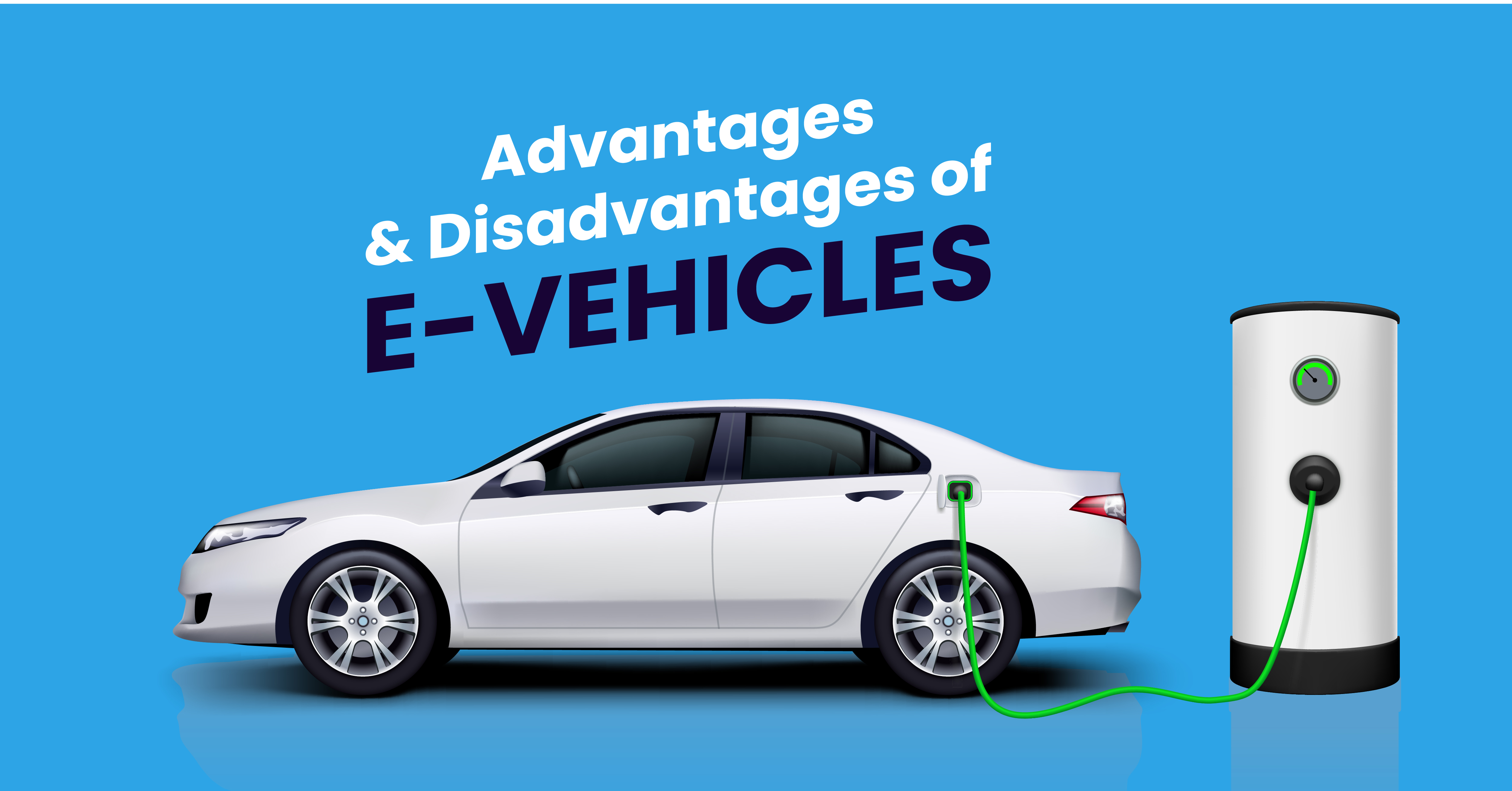Navigating the Pros and Cons of Electric Vehicles: A Comprehensive Guide with Bajaj Finservs Insta EMI Card
As the global automotive industry continues its transition towards more sustainable transportation options, electric vehicles (EVs) have emerged as a leading force in this revolution. While EVs have garnered significant attention and adoption, the decision to switch from conventional combustion-engine vehicles to electric ones requires a thorough understanding of their advantages and disadvantages.

- Environmental Impact: One of the most significant advantages of electric vehicles is their positive environmental impact. EVs produce zero tailpipe emissions, drastically reducing air pollution and contributing to a greener, cleaner planet. By using renewable energy to charge EVs, individuals can further minimize their carbon footprint.
- Cost Efficiency: Electric vehicles typically offer lower operating costs compared to gasoline-powered vehicles. This includes savings on fuel expenses, as electricity is generally cheaper than gasoline. Moreover, EVs have fewer moving parts, reducing the frequency and cost of maintenance.
- Performance and Comfort: EVs boast high torque and provide instant acceleration, leading to smoother and more responsive driving experiences. Additionally, electric motors operate quietly, offering a serene and comfortable ride.
- Technological Advancements: Many EVs come equipped with advanced technology and connectivity features, including driver-assistance systems, navigation, and infotainment options. This integration enhances user experience and provides additional safety.
Disadvantages of Electric Vehicles:

- Limited Range: Despite technological advancements, range anxiety remains a significant concern for prospective EV buyers. Although high-end EVs offer impressive ranges, budget-friendly options still face limitations in the distance they can travel on a single charge, which might not suffice for long trips.
- Charging Infrastructure: The availability of charging stations poses challenges for EV owners, especially in regions where infrastructure development lags. While urban areas are becoming more equipped, rural locales may not have easy access to charging facilities.
- Higher Initial Costs: Electric vehicles often have higher upfront costs compared to traditional cars. Although incentives and tax breaks can help mitigate this, the initial price tag remains a barrier for many consumers.
- Battery Degradation: Over time, the batteries in electric vehicles can degrade, affecting performance and range. The cost and effort involved in replacing these batteries can be significant, although technological advancements continue to address these issues.
To facilitate the transition towards electric vehicles and make them more financially accessible, Bajaj Finserv offers the Insta EMI Card, a powerful tool for managing expenses. With flexible repayment tenure, the Insta EMI Card provides several benefits, making it an attractive option for individuals considering purchasing an electric vehicle or other high-value products:

- Flexibility in Repayment: The Insta EMI Card allows users to pay for their purchases in easy monthly installments (EMIs), offering flexible repayment tenure that fits individual financial situations. This flexibility can be crucial when contemplating a high-cost purchase like an electric vehicle.
- Wide Acceptance: The Insta EMI Card is accepted at a vast network of retail stores and online portals, ensuring users can utilize the card for various types of transactions.
- Quick Approval: Bajaj Finserv ensures a swift approval process for the Insta EMI Card, often taking just minutes. This speed eases the purchasing process, especially when deciding on significant investments.
- Minimal Documentation: Applying for the Insta EMI Card requires minimal documentation, streamlining the process for prospective users.
As an informed car buyer, the 'Navigating Pros and Cons of Electric Vehicles: A Comprehensive Guide with Bajaj Finservs Insta EMI Card' provides a valuable guideline on making smart choices by weighing up trade-offs between electric vehicle benefits versus traditional fuel options.
A Practical Roadmap for Smart Driving: Navigating the Pros and Cons of Electric Vehicles with Bajaj Finservs Insta EMI Card'S Financial Solutions.
A Comprehensive Guide to Navigating the Pros and Cons of Electric Vehicles, powered by Bajaj Finservs Insta EMI Card - An insightful piece that enhances understanding on electric vehicle ownership with financial considerations in mind.
A comprehensive guide to navigating the electric vehicle landscape using Bajaj Finserv's Insta EMI Card, offering a nuanced approach that weigh-ups both advantages and drawbacks for an informed decision on EV adoption.
A Comprehensive Guide with Bajaj Finservs Insta EMI Card—Fueling Conscious Choices: Navigating Electrified Vehicles' Advantages and Drawbacks.
Exploring the nuances of electric vehicle adoption: A thorough guide illuminated by Bajaj Finserv's Insta EMI Card, navigating through its advantages and drawbacks with an unparalleled financial tool for a greener future.
This comprehensive guide by Bajaj Finserv's Insta EMI Card navigates the pros and cons of electric vehicles with clarity, offering a detailed assessment for consumers contemplating their purchase.
Exploring the intricacies of electric vehicles' benefits and drawbacks with Bajaj Finservs Insta EMI Card as a financial navigator provides an in-depth understanding for making informed decisions on green mobility.
This comprehensive guide by Bajaj Finserv on navigating the upside and downside of electric vehicles provides a nuanced perspective for consumers to weigh their options, showcasing its Insta EMI Card's flexibility as they embark into eco-friendly transportation.
A Comprehensive Guide With Bajaj Finserv’s Insta EMI Card: Navigating the Electric Vehicle Landscape in a Pragmatic yet Insightful Manner, illustrates how this tool can be indispensable for consumers to weigh EV advantages against their limitations."














